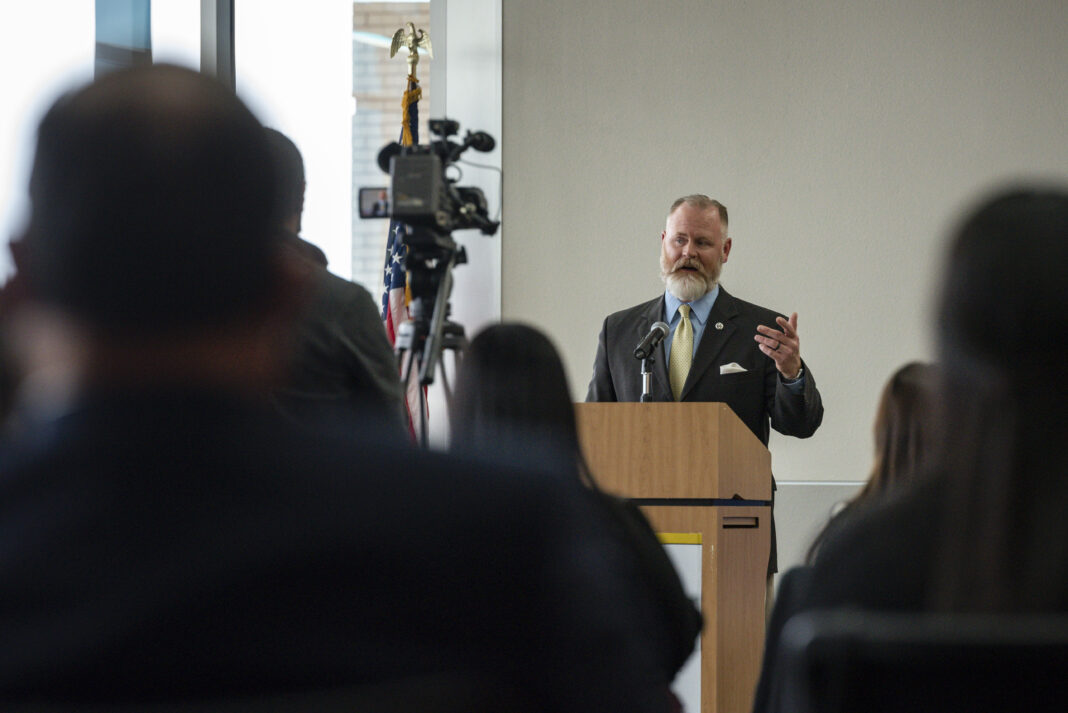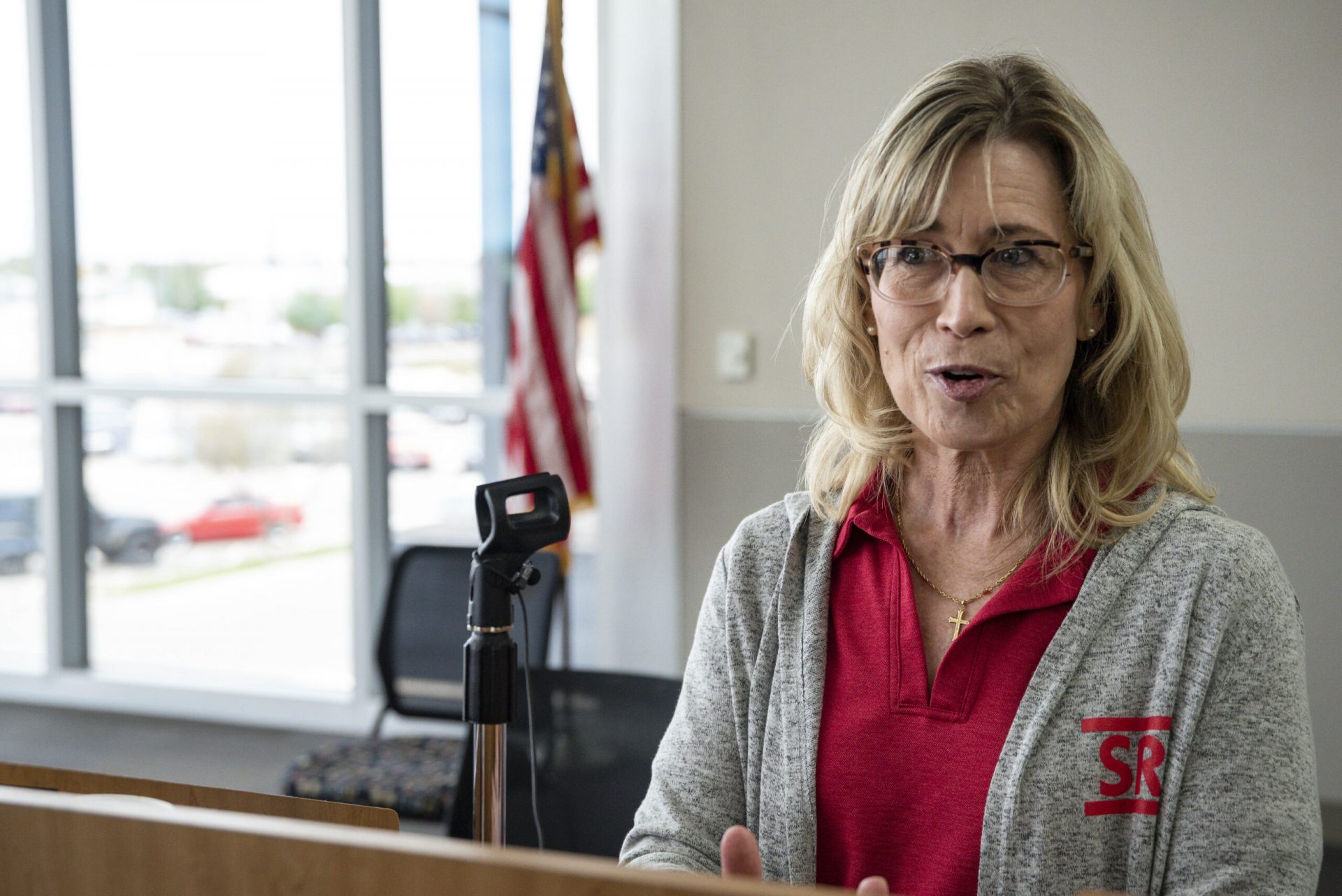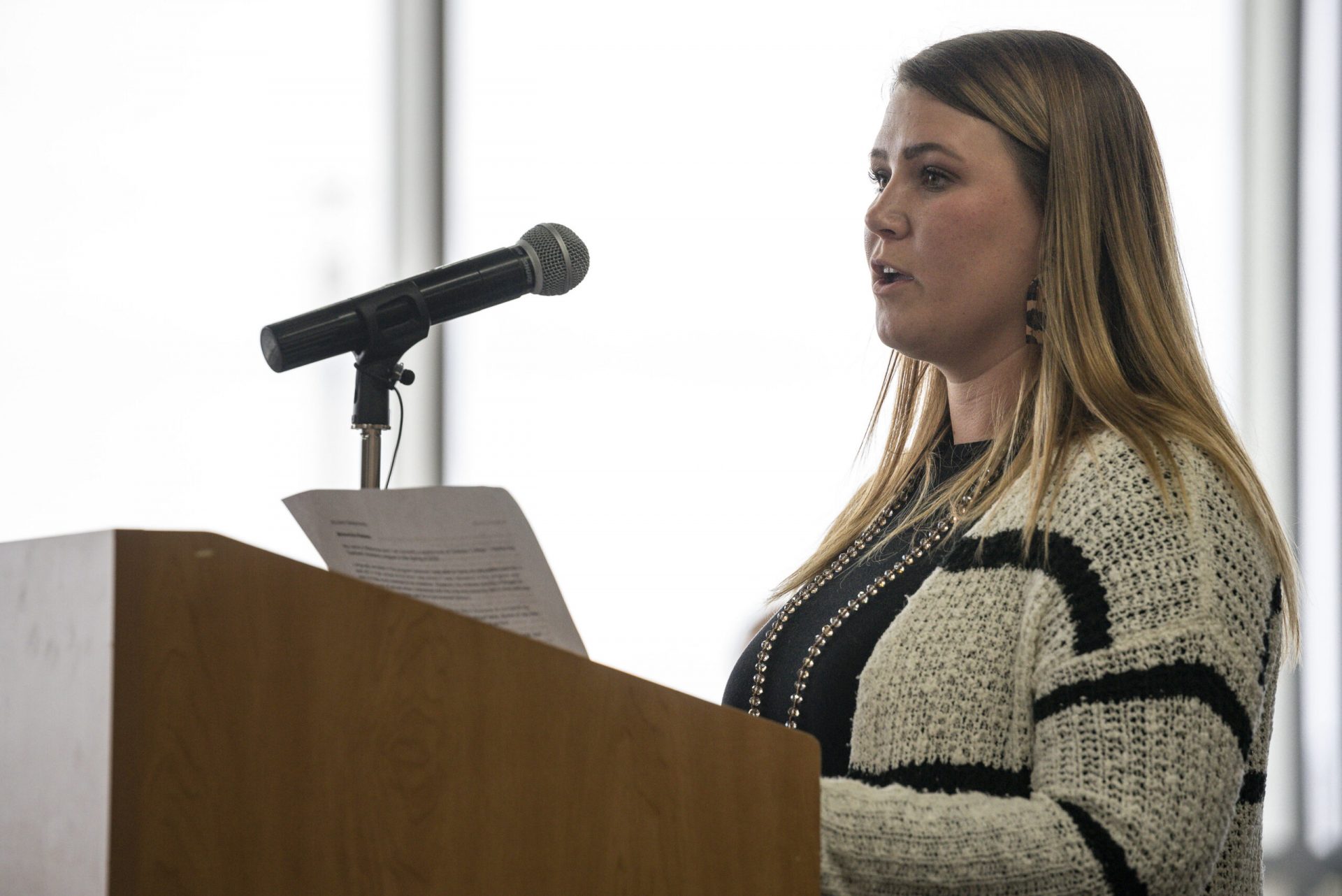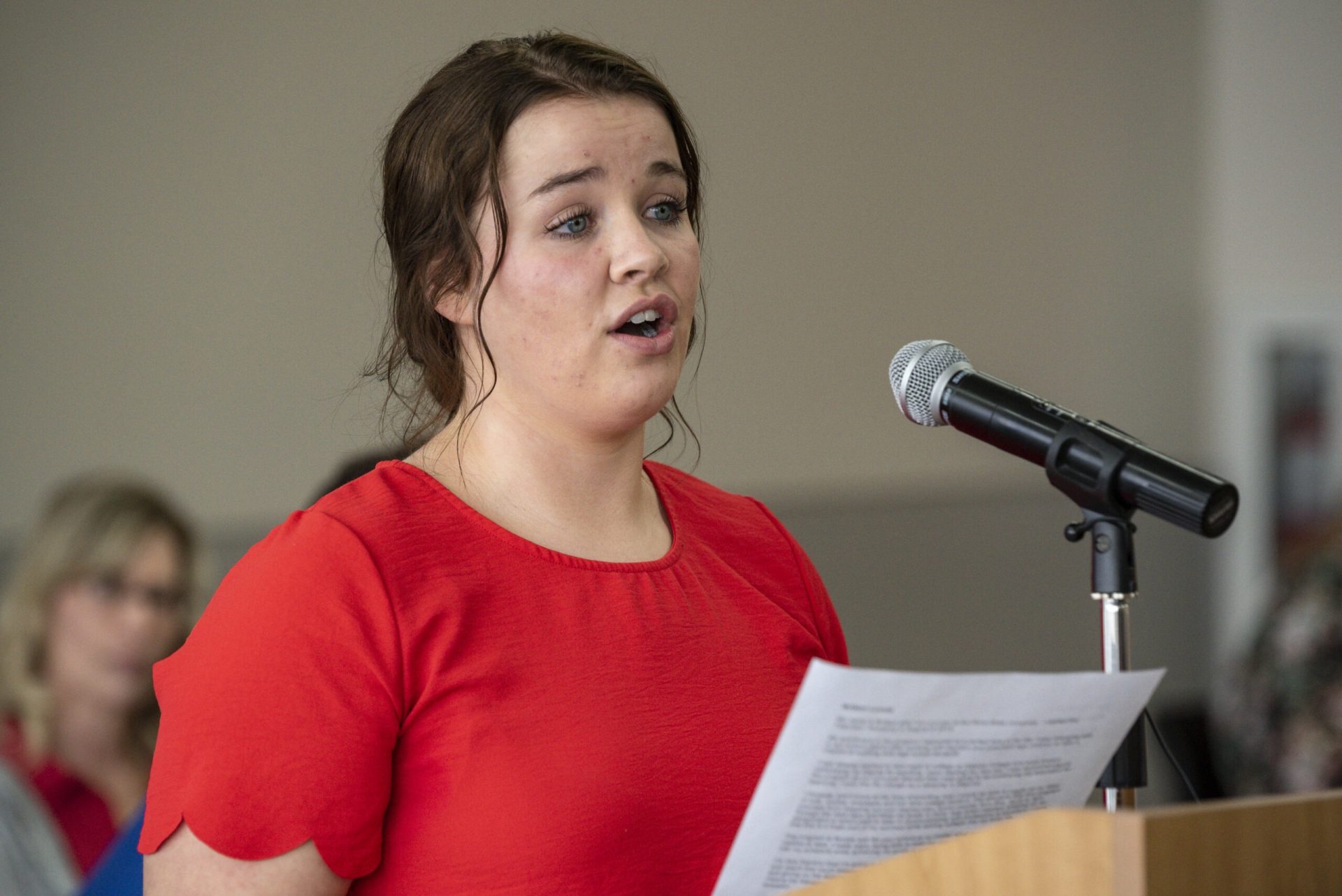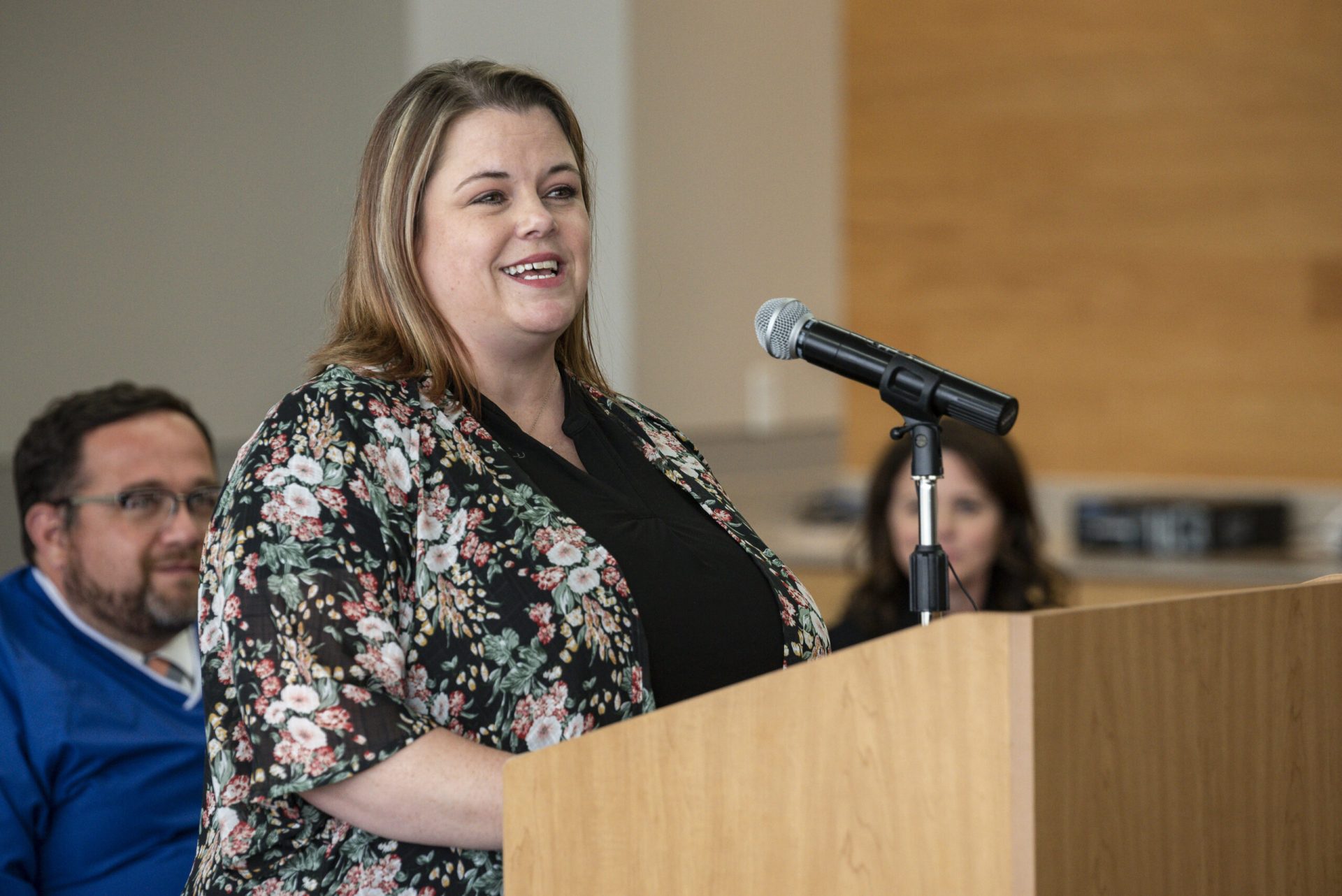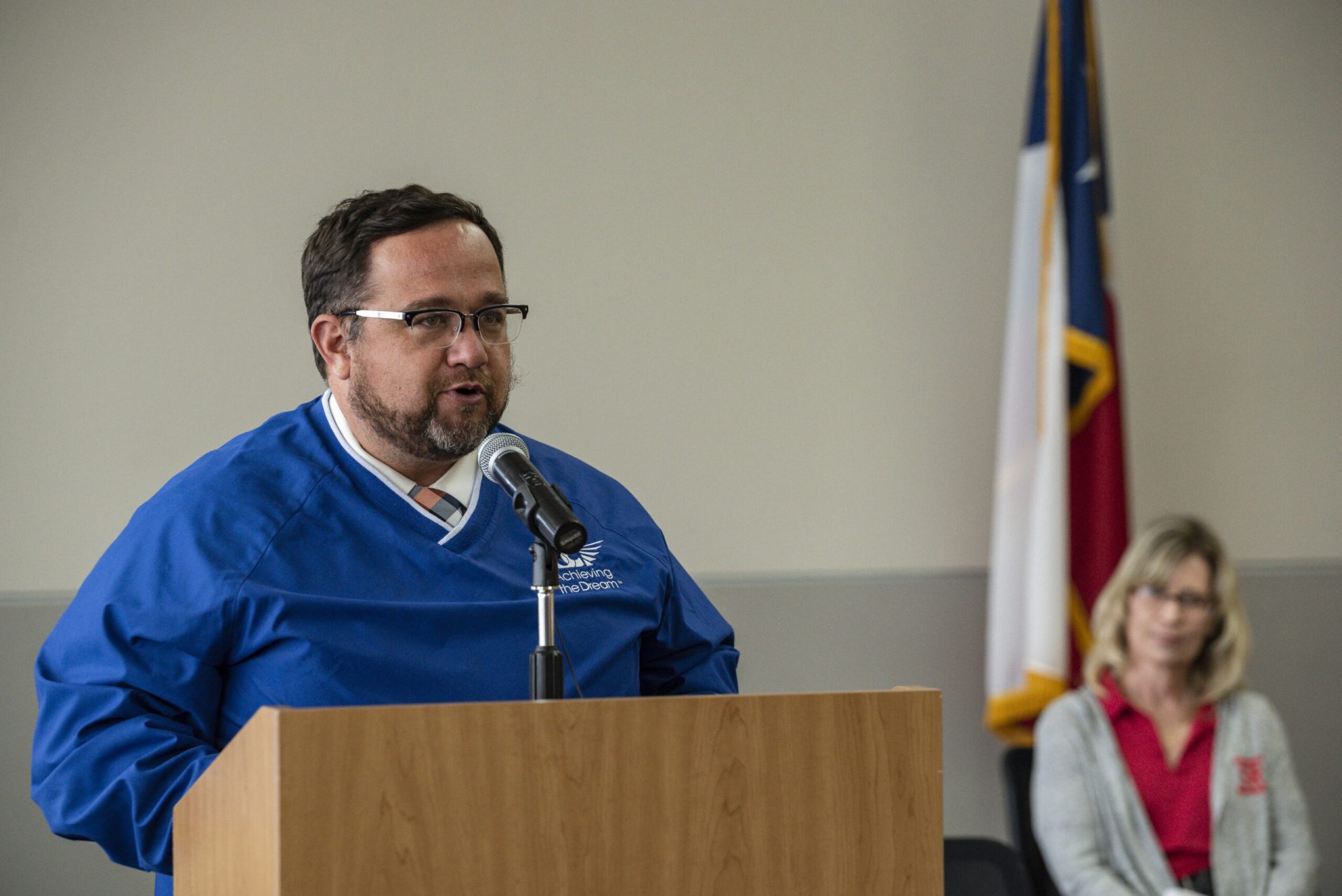Helping to deal with the problem of the shortage of teachers in the Permian Basin, the Andrews Independent School District has since started the AISD Teachers’ Academy.
Working in collaboration with Andrews ISD, Odessa College and Sul Ross State University, XTO Energy is funding the new program in Andrews to combat the shortage of educators in the area.
The program has been in the works for the last two years and was officially launched on Wednesday on the campus of Odessa College.
The new Teachers’ Academy will allow Andrews ISD students to complete an associate degree through Odessa College while they are still attending high school.
After obtaining the associate degree, students then take courses from Sul Ross State University while remaining in Andrews to earn their bachelor’s degree.
This no-cost program allows students to obtain a teaching certificate in 12-24 months after high school graduation and never have to leave home.
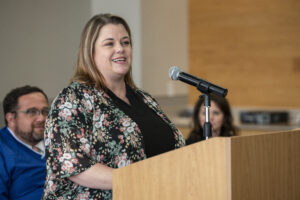
“We started this program two years ago,” Krista Scott, director of advance academics at Andrews ISD, said. “It’s a program where students can start working on their associate’s in high school and graduate with their associate’s and then be hired after their senior year with the district and become a para professional and then go on to be a student at Sul Ross State. Once they finish their certification, the district will hire them and they agree to teach for at least three years.”
Scott added that the program is to help grow teachers within their community.
“They are familiar with the way we do school and help fulfill those roles and it gives these students a chance to chase their dreams but also help the students in our district,” Scott said.
XTO Energy is the catalyst for the debt-free Teachers’ Academy Program. It is an affiliate of Exxon Mobil Corporation.
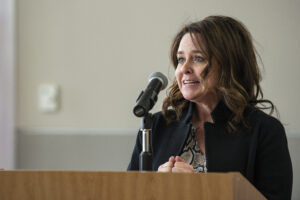
“We are looking forward to being a part of this program,” Courtney Wardlaw, public and governor affairs advisor for XTO Energy, said. “It’s so innovative with Andrews ISD, Sul Ross State and Odessa College. This program shortens the amount of time students have to be in college in order to graduate and have their teaching certificate and get right into the workforce in their home town. They never have to leave and they’re helping with the teaching shortage in the Permian Basin.”
Wardlaw said XTO Energy gave $50,000 over a couple of years to help be the catalyst to start the funding for the program.
“We’re always looking for innovative outside the box ideas that help students get in the workforce,” Wardlaw said. “We have a shortage in our area. We need more and more people to get into all the industries out here. Not just the oil and gas industries.”
One of the benefits is that the program provides reimbursed tuition costs for all passed courses.
“This tuition is free for all the students,” Wardlaw said. “They take their courses and once they pass, their tuition is reimbursed to them. So, they graduate tuition-free and with a job and I can’t think of a more innovative program for the teacher shortage in the Permian Basin.”
The innovation of the program is what drew XTO Energy to it.
“Students do not have to complete the entire 120-130 hours of a four-year college degree in order to graduate from this program,” Wardlaw said. “Sul Ross, OC and Andrews were innovative in pulling out those extra courses that are just electives that don’t do anything to help these students become teachers. It shortens the program and gets these students in front of other students in the teaching profession.”
Wardlaw said because students never have to leave Andrews that they save on room and board. “They’re saving on transportation. They never have to leave home. They can stay in Andrews and start their teaching career there.”
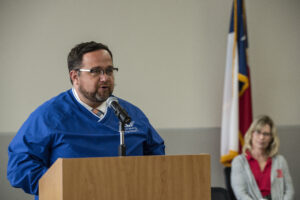
Jonathan Fuentes, executive dean of academic partnerships at Odessa College, said that the program helps increase the pipeline of teachers to area school districts.
“We’re excited,” Fuentes said. “We know there are lots of vacancies across the Permian Basin so this partnership allows us to go in and work with students from Andrews and produce teachers at Andrews ISD. We’re thankful for the partnership with Andrews, Sul Ross State and XTO Energy that allows us to make this happen.”
Barbara Tucker, dean of education and professional studies at Sul Ross State University, said she is hopeful of growing the program to other areas.
“We’re just hoping to start with the teacher education program but we’re hoping to expand that into some of our other programs where we can offer business or criminal justice and multiple different areas that we hope we can get the students on board with,” Tucker said.
Andrews High School senior Korbin Scott, the son of Krista Scott, who will be graduating with his full associate’s degree started in the program in 2019.
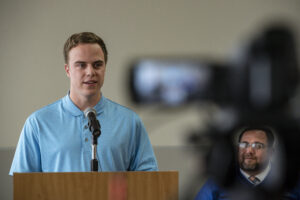
“My mom came to me in the spring and asked me if I wanted to do the program,” Korbin said. “I was going to take a bunch of classes in the summer and school year and I started that summer and it rolled from there.”
Korbin, however, will be moving on to complete his education at Baylor but he aims to continue to teach math after he graduates from college.
“I love math and I don’t know what capacity I want to teach at because I would love to teach anywhere from elementary to high school so I think I’m going to teach math and then figure out everything else as time goes on,” Korbin said.
Other members of the program talked about how much it has helped them.
“I started the program in the spring of 2020,” Odessa College Sophomore Mackenzie Keese said. “When I was first approached by (Krista) Scott if I was interested in this program, I was still in high school and I wasn’t fully sure if I wanted to be a teacher but I was told that my school was going to be paid for and that is a really awesome thing.”
Andrews ISD Superintendent Bobby Azam spoke highly of XTO Energy’s support for the program.
“We could not do this without XTO’s support,” Azam said. “It took one meeting with them and they loved it and wanted to do it. They want the Permian basin to do well. They want teachers to stay here. They know our communities and towns will survive based on how good our education is.”

